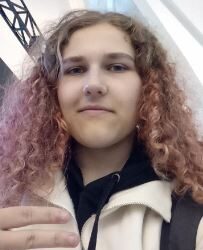Interview
YOU START WITH A STORY (Part 3)
What does a young person need to know to edit a movie?
Author: Bisera Gjurovska
In 2021 Bisera Gjurovska interviewed Leona Jarikj, at the time an up-and-coming young Macedonian filmmaker, as well as the rest of the crew engaged in one of the first Leona’s short films, called “Jinx.” With this interview, Bisera wanted to show how young people can make a successful short film, promote the crew for their endeavors as well as support young people in their aspirations.
This blog post is focused on the editing of the movie. The video clip is the third and last part of the interview.
In this third part of the blog post series, we will broach the topic of editing. This topic is likely less familiar to young people, who might have some knowledge of acting, music or camera work, but have not been faced with editing in their day to day lives in the same ways they have with these other skills.
It would be surprising to hear that one has not had to act their way out of a situation or has not tried acting out a favorite scene from a movie. It would also be shocking if one has never had music lessons in school or has never sung along to their favorite music. It wouldn’t be considered particularly odd if one has never had to edit anything in their lives, even in this ever-increasingly digitalized world.
Leona first talks generally about the film, how it took six months to film it and two to three months to edit it. The editing was done by Leona herself and Leon Shumanski. There were also scenes that needed to be reshot, which would make it to the final cut. It’s interesting to note that the actual time it took to shoot the film was a couple of days, stretched out into months because of scheduling difficulties. The same can be said with its editing, while it might take a full day or two to edit that specific film, you may not always be able to do it all at once.
The editing team used Premier Pro, mainly because both editors were familiar with it and because it’s one of the best software for editing.
Here, we will pause to share some links to other editing software young filmmakers might find useful:
- https://filmlifestyle.com/professional-video-editing-software/ (5 Best Professional Video Editing Software in 2023)
- https://www.techradar.com/best/free-video-editing-software (Best free video editing software (2023))
Leona and I talked about where she got her experience in editing. She notes that while she had been involved with editing in the 8th grade, she finally started developing that skill at MakeDox, a creative documentary film festival in Skopje. A worker at the festival, who had studied editing, taught her about videomaking, the editing process and Premier Pro as a specific program. Leon, on the other hand, learned the editing skills in other ways, through practicing while helping friends and gathering information from the Internet. There are different ways to learn how to edit, as there are many ways to learn any skill. There are tutorials on YouTube, free online courses, people you can ask to tutor or mentor you, tutorials on some programs which can help you learn by yourself without supervision. The only thing you need to do is look for these tools and be curious.
The editing of this film was a joint effort, considering that Leona, who was less experienced did more basic things, whereas Leon did the work that required more experience. It’s important to note that if you’re good at editing, you could edit a film alone, but it might take you more time or effort. Having a vision that you want to work towards on your own can help you pull it off, depending on your skill level and time constraints. However, while having a vision, skills and time is important, the most important thing according to Leona is experience. She personally feels she would have never been able to edit the film at all if she hadn’t at least seen what editing looked like, as it can be quite intimidating to learn on your own. You should try to gain as much as possible before starting to edit your own film.
You can never get enough tips on editing, so here are a few more:
- https://academy.wedio.com/film-editing/ (A Go-to Guide: How to Edit Film & Best Techniques to Try Out)
- https://www.soundstripe.com/blogs/the-basics-of-film-editing (The Basics of Film Editing (and How to Edit a Movie))
- https://www.studiobinder.com/blog/what-is-film-editing-definition/ (What is Film Editing — Editing Principles & Techniques Explained)
About the author:
Bisera Gjurovska
Age: 18
Country: North Macedonia
City: Skopje
School: Orce Nikolov
Juror in Giffoni Macedonia: 2022, 2021, 2020
Giffoni Experience Italy 2022
